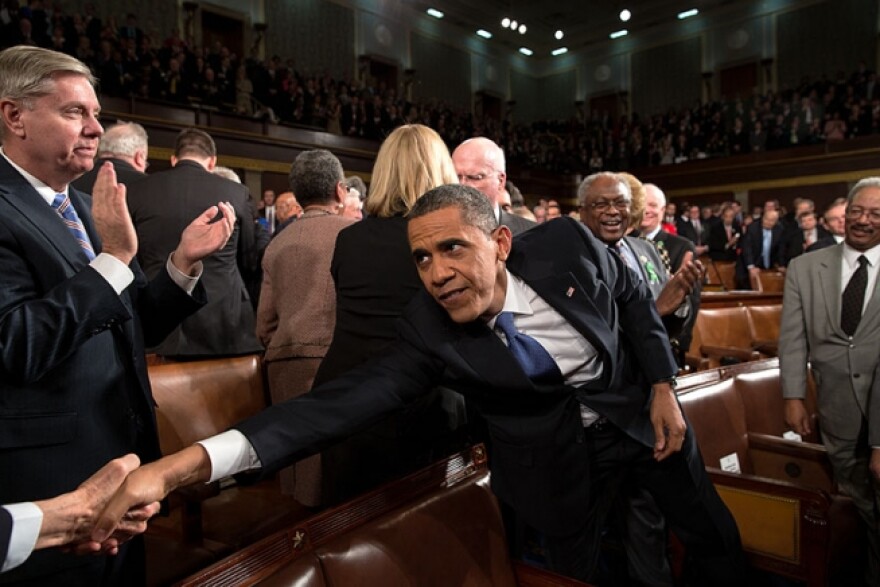President Obama chastised Congress for its partisan bickering and lack of progress in tackling the nation’s imperatives during his State of the Union address.
“The American people don’t expect government to solve every problem,” the president said. “They don’t expect those of us in this chamber to agree on every issue. But they do expect us to put the nation’s interests before party. They do expect us to forge reasonable compromise where we can.”
Some members of Congress are promoting bipartisanship, forming a new group called “No Labels.” New York 19th district Republican Congressman Chris Gibson says the goal is to build trust across the aisle.
“This is a group of about 40 members of Congress that are looking to unite our Congress so that we can move us forward to grow this economy, to move back to a balanced budget over time,” Gibson said.
“This is very important that if one believes, as I do, that the status quo is unacceptable, then in an era of divided government, given our constitutional design, the only way we’re going to change the status quo is if we work together.”
Gibson also noted his work with Democratic Vermont Congressman at-large Peter Welch over the last two years, including on recovery funding after storms Irene and Sandy.
“The biggest challenge we face is Congressional dysfunction,” said Welch. “We have big problems, but they’re solvable problems: on energy, on the budget, on healthcare, on job creation. These things can be addressed in a very productive way.”
“Congress has to be willing to essentially settle for making progress as opposed to having this illusion that there can be some big ideological victory on either side,” Welch continued.
“Politics has to be about principled compromise when making progress, not just about arguing.”
New York 21st district Democratic Congressman Bill Owens sat with members of the No Labels group during the State of the Union address.
“I think the proof will be in the actions that we’re actually able to accomplish,” Owens said. “That means we need to come up with some legislation that is acted on and that has strong support from this group, and that this group in effect becomes the driver or the difference maker in the passage of the legislation.”
“To some degree, No Labels did have some significant impact on the vote for the ‘No Budget, No Pay’ bill. So that is a beginning. We need to do more, and we’ll only be able to determine whether or not this group works if, in fact, we accomplish something.”
Congressmen Welch and Owens found most of the agenda presented by President Obama sensible and economically beneficial. Vermont’s Congressman Peter Welch was pleased there were no new grand initiatives presented by the President.
“We would be skeptical if the president came in and had some big, bold new initiative that somehow was going to solve the problems that we know we have. And I thought what he did well was two things,” he said.
“Number one, he really described the challenges that the middle class in America faces. I thought people listening, from small business owners, to families trying to figure out how to pay the tuition and hang onto their jobs, I think he described their world in a way that gives confidence that he understands it.”
“Secondly, his proposals to address it were practical. So it was like a practical middle class agenda and it reminded us we’ve been at our best and our strongest when the middle class is doing well.”
A link to the website for the Congressional No Labels group is available here.



